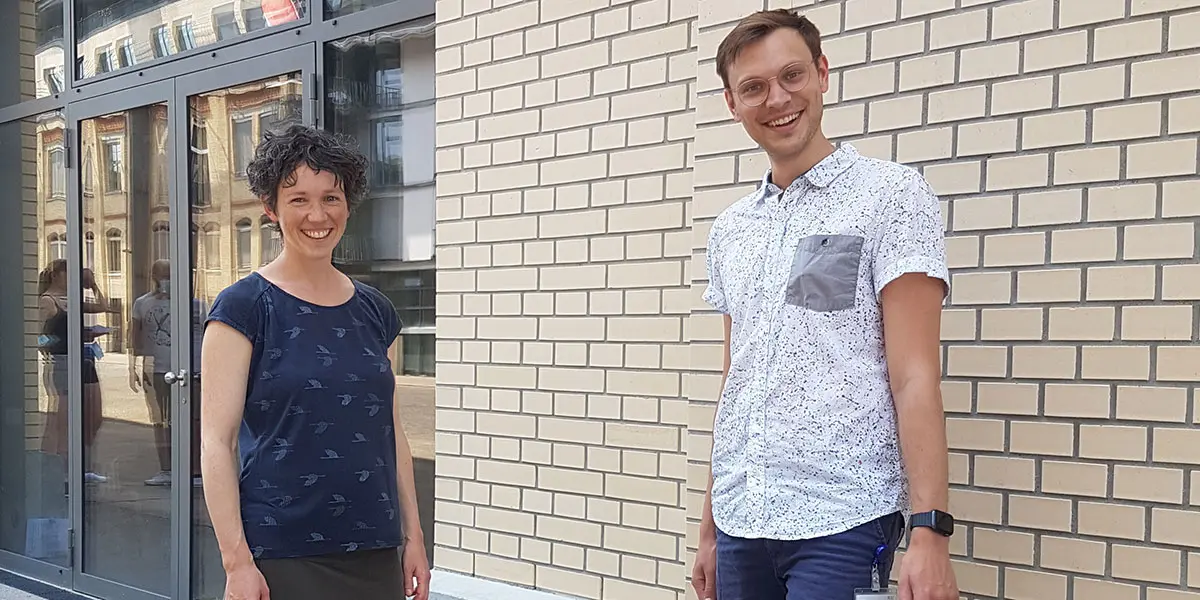Doctoral students champion children’s right to play
Two ZHAW doctoral students, Ines Wenger and Thomas Morgenthaler, are researching children and play as part of the European “P4PLAY” doctoral programme. Their PhD projects look at spatial, social and societal aspects and inclusion at playgrounds and aim to develop an assessment for measuring environmental factors and their impact on play.

Play, and outdoor play in particular, is fundamental for the physical and mental development of children. Nevertheless, even children in prosperous countries such as Switzerland and Austria are confronted with restrictions when it comes to playing. This is the case, for example, when playgrounds are not designed in a barrier-free manner, meaning that children with disabilities and their families are excluded from this area of social life.
It is important to Ines Wenger and Thomas Morgenthaler that all children are able to exercise their right to play. Both have worked with children for a long time as occupational therapists. Although children have the right to play under the UN Convention on the Rights of the Child and the Swiss Disability Discrimination Act, for example, the fact that children are prevented from playing despite this was the driving force behind their decision to apply for the P4PLAY programme. The European Joint Doctorate, which is financed by the EU Commission, comprises eight PhD positions in Ireland, Sweden, Scotland and Switzerland that are all dedicated to exploring the phenomenon of play. It investigates four areas of play: people, place, policy and practice. Wenger and Morgenthaler each took up a PhD position at the start of 2021, with supervision being provided by Prof. Christina Schulze at the ZHAW Institute of Occupational Therapy, among others.
Universal design and inclusion at playgrounds
Ines Wenger’s project is looking at spatial inclusion and is thus addressing the dimension of “place” within the P4PLAY programme. In her doctorate, Wenger is investigating how Universal Design can be applied at playgrounds that can enhance the value of play and promote inclusion. In an initial study, she has already examined children’s experiences of using barrier-free playgrounds in Switzerland, including both those with and without disabilities. A second study is looking at the perspectives of specialists who are involved in the design of playgrounds. In two other studies, Wenger will then primarily address the notion of Universal Design and how it impacts the value of play and inclusion. Here, her partner organisation, the Centre for Excellence in Universal Design in Dublin, will play an important role. She will spend several months there as well as at the ZHAW and the Luleå University of Technology in Sweden. Wenger will illustrate her findings with best practice models from Ireland, Sweden and Switzerland and summarise them in a set of good practice guidelines.
Development of a measurement instrument
Thomas Morgenthaler’s PhD project looks at another of the four P4PLAY dimensions: practice. Here, the objective is to gain evidence that will be beneficial in practical scenarios. One means of obtaining such evidence is by developing assessments. And this is also the objective of Morgenthaler’s doctorate: a measurement instrument for play in public playgrounds that is practical, valid and reliable. To achieve this goal, his work will initially see him examine existing assessments and conduct a literature review to determine the environmental factors that relate to the value of play in public playgrounds. His focus is on children with disabilities and their families.
These findings will serve as the basis for a pilot assessment, the validity of which Morgenthaler intends to then test in Switzerland and Ireland. While collecting the required data, he will likely also receive support from his partner institution, de Speeltuinbende (the “Playground Gang”). This Dutch non-profit organisation has experience in incorporating the perspective of affected children and their parents. In addition to the time he will spend at the ZHAW and University College Cork in Ireland, Morgenthaler will also spend several months conducting research in the Netherlands.